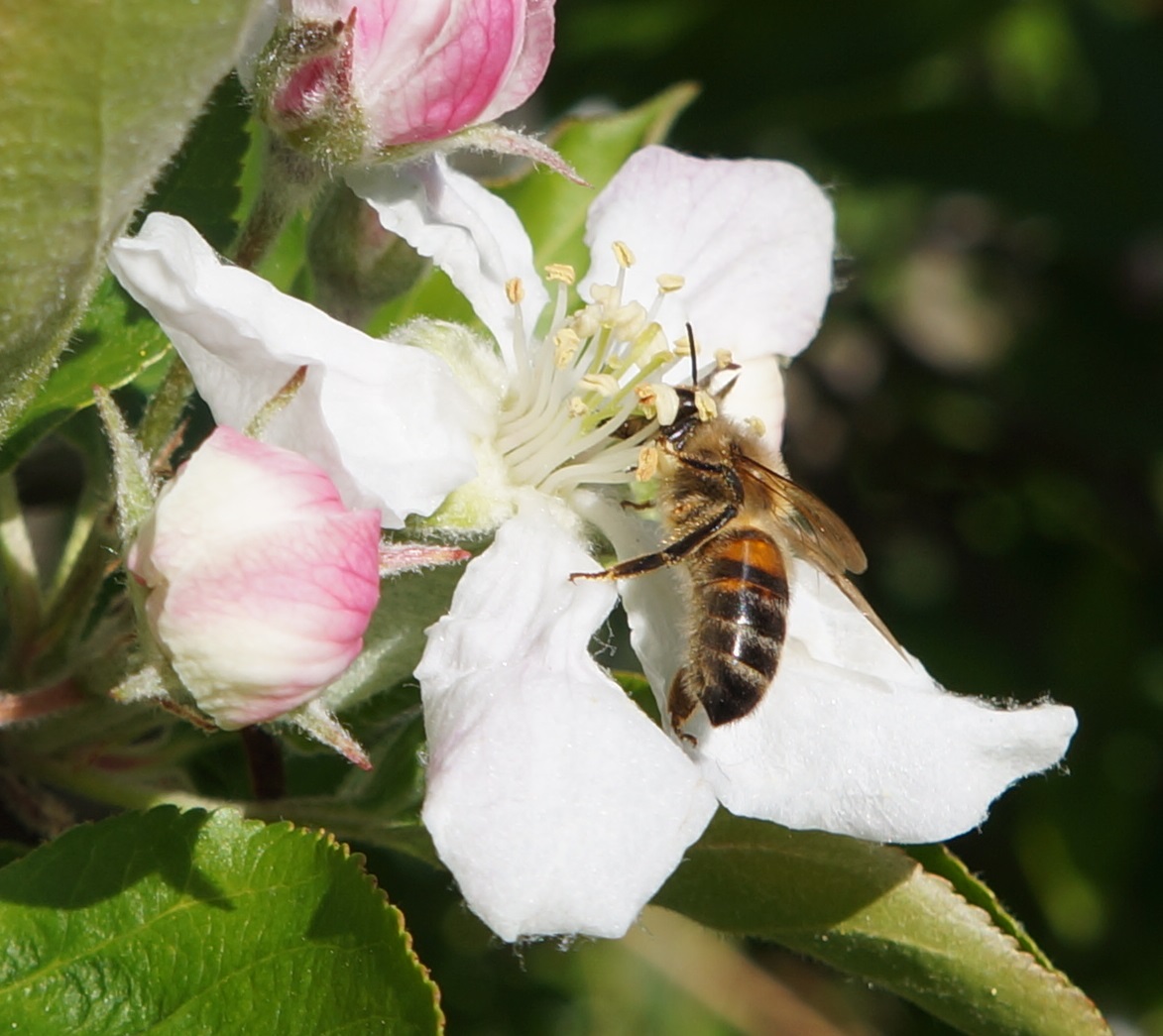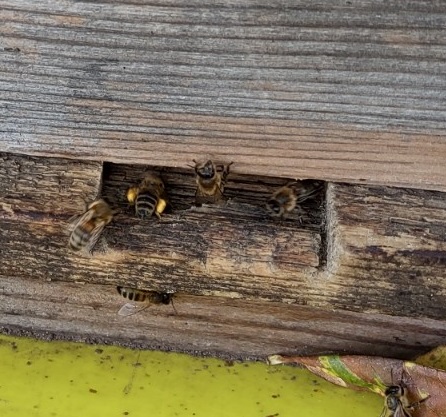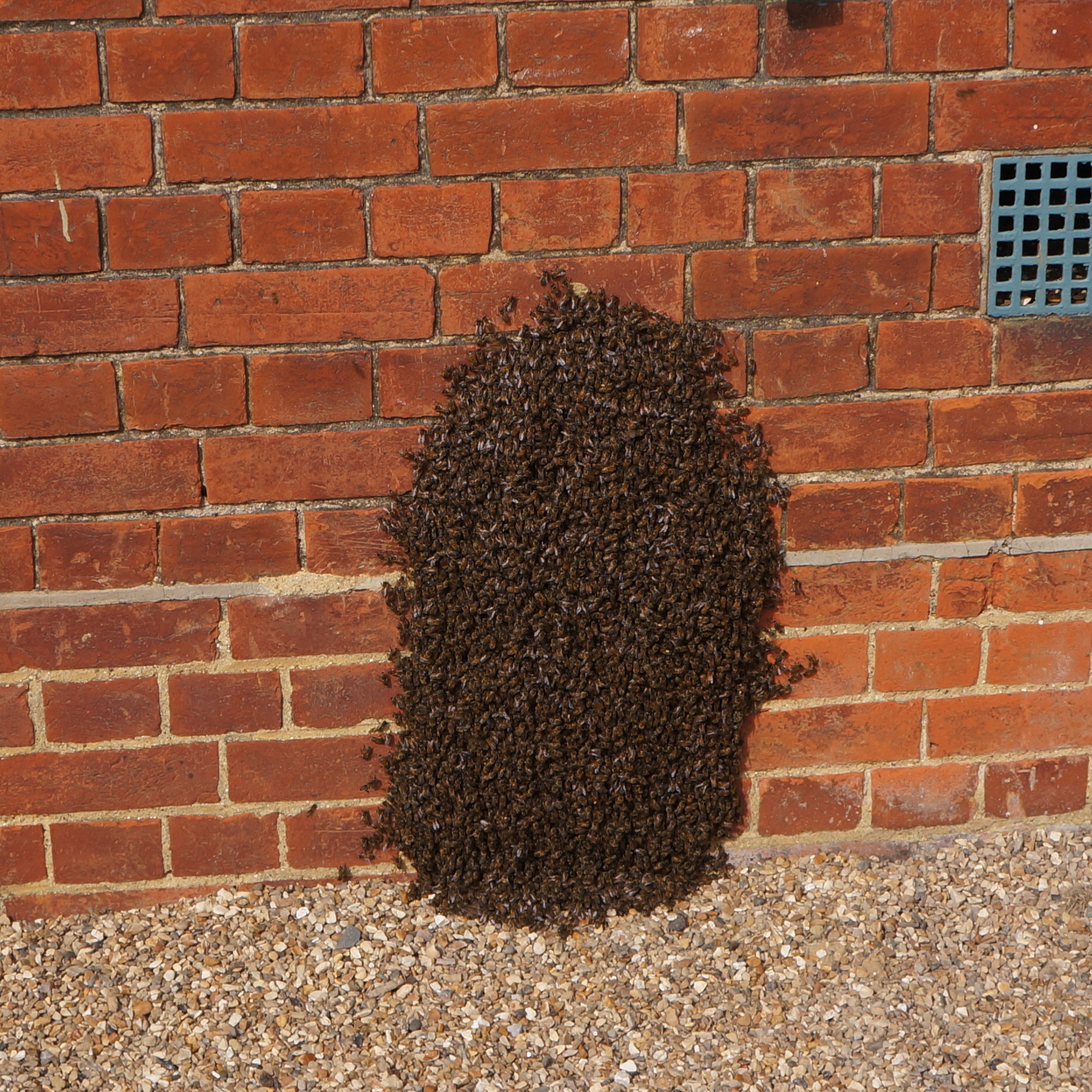 Abraham Lincoln
If given the truth, the people can be depended upon to meet any national crisis...
Abraham Lincoln
If given the truth, the people can be depended upon to meet any national crisis...
 Guildford news...
for Guildford people, brought to you by Guildford reporters - Guildford's own news service
Guildford news...
for Guildford people, brought to you by Guildford reporters - Guildford's own news service
Beekeeper’s Notes: Why Bees Are Important
Published on: 1 Jan, 2023
Updated on: 1 Jan, 2023
Hugh Coakley keeps bees in Worplesdon
I’ve had a lovely email from 13-year-old Nat Sutton who lives in Guildford. He is doing a research project at school called “Do we need bees to save the planet?”. He set me some questions which made me think.
So thank you Nat, here goes:
Why are bees important? They are vital to us humans as pollinators of the plants we eat. Fruits such as apples and blackberries, nuts such as almonds and cashews and vegetables like onions and cauliflower.
Around a third of the food for humans in the world depends on pollinators to reproduce. They also pollinate trees and plants which make up the wonderful, diverse world we live in.
But honey bees aren’t the only insects that pollinate. Bumblebees, wasps, hoverflies, moths, beetles and butterflies all play their part in pollinating plants all around the world.
But bees are important in their own right, not just for humans. They are cogs, just as we are, in the incredible life on our planet.
Maybe we notice them more than many other forms of life because they pollinate flowers and give us beautiful honey which we all love.
How do we look after bees best? We have to look after their habitats. Have lots of flowers in our gardens and open spaces they can visit to get the nectar and pollen they use for their food.
When we look at our gardens and parks and cities, we should be thinking not just how we like to live and play but how other creatures like it as well and that includes all insects.
So lots of different plants, not just grass, and water and not too tidy or perfect.
What can increase the population of bees? Bees have been around for 20 million years so they are able to live very happily without human help if they are allowed to.
There needs to be plenty of flowers that give bees and insects food throughout the year, from crocuses and snowdrops in the spring, ivy in the winter and fruits and vegetables during the summer.
This is a lovely website with information of the plants that bees like.
It’s important to have a water source in the garden. I heard one ecologist say it was probably the single most important thing you could do in your garden to encourage all wildlife.
What are the threats to beehives in this country? The varroa mite is still a huge issue with honey bees but it is managed.
The National Bee Unit says there were about 270,000 honey bee hives in the country in 2021. This is up from the government estimates of 80,000 colonies in 2008 and 125,000 colonies in 2013.
So, honey bees, which are looked after by beekeepers, are probably ok.
It’s the wild insect population that is under most threat.
We grab the land they live on to build houses and shops and factories. We farm for our food wonderfully efficiently but it means there are no insects in the fields.
We campaign against the Brazilians for cutting down the Amazon rain forest. But are we any better? The UK is one of the most nature depleted countries in the world.
Young Nat, thank you for your questions. I have enjoyed thinking about the answers and I hope it helps your project.
Make your home and garden and your school insect friendly and write to your MP to let her know how the environment matters to you.
Recent Articles
- Guildford Institute’s Crowdfunding Project for Accessible Toilet in its New Community and Wellbeing Centre
- Letter: Guildford – Another Opportunity Missed?
- Letter: GBC’s Corporate Strategy – Where Is the Ambition?
- My Memories of John Mayall at a Ground-breaking Gig in Guildford Nearly Six Decades Ago
- Westborough HMO Plans ‘Losing the Heart of the Street’ Says Resident
- College Invests to Boost Surrey’s Economy and Close Digital Skills Gap
- Community Lottery Brings Big Wins for Local Charities
- GBC Housing Plan Promises ‘A Vibrant Urban Neighbourhood’ Near Town Centre
- Hospital Pillows ‘Shortage’ at the Royal Surrey
- Updated: Caravans Set Up Camp at Ash Manor School


Search in Site
Media Gallery
Dragon Interview: Local Artist Leaves Her Mark At One of England’s Most Historic Buildings
January 21, 2023 / No Comment / Read MoreDragon Interview: Lib Dem Planning Chair: ‘Current Policy Doesn’t Work for Local People’
January 19, 2023 / No Comment / Read MoreA3 Tunnel in Guildford ‘Necessary’ for New Homes, Says Guildford’s MP
January 10, 2023 / No Comment / Read More‘Madness’ for London Road Scheme to Go Ahead Against ‘Huge Opposition’, Says SCC Leader
January 6, 2023 / No Comment / Read MoreCouncillor’s Son Starts Campaign for More Consultation on North Street Plan
December 30, 2022 / No Comment / Read MoreCounty Council Climbs Down Over London Road Works – Further ‘Engagement’ Period Announced
December 14, 2022 / No Comment / Read MoreDragon Interview: GBC Reaction to the Government’s Expected Decision to Relax Housing Targets
December 7, 2022 / No Comment / Read MoreHow Can Our Town Centre Businesses Recover? Watch the Shop Front Debate
May 18, 2020 / No Comment / Read More













Recent Comments